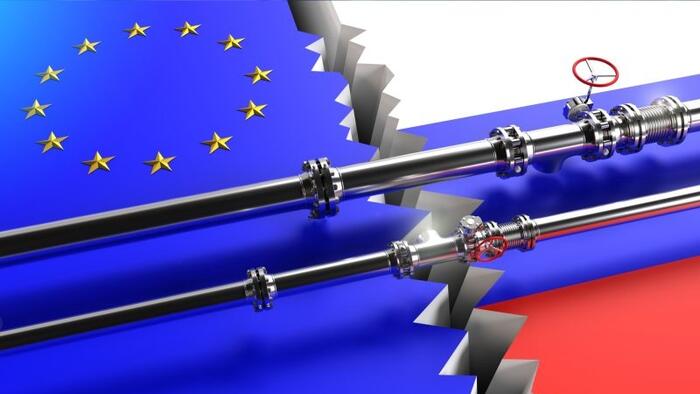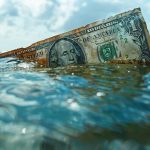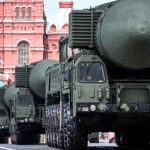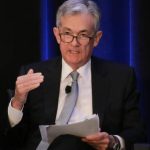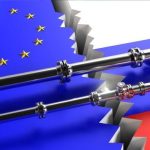Authored by Christiaan W.J.M. Alting von Geusau via The Brownstone Institute,
The Dutch newspaper De Volkskrant, one of the country’s leading publications, devoted its front page story on Saturday, November 9th claiming in large print and framed by an even larger menacing photo of Donald Trump that “This is the New World Order: It will be Lonely for European Democracies.” The piece went on to state that Trump’s election is a boon for autocrats worldwide while pointing out that the president-elect is apparently aiming for ‘a weak and divided Europe.’
This is quite a mouthful of far-reaching claims for a major newspaper that pretends to offer objective journalism. In fact, since November 5th, thanks to the dignified statesmanship of President Joe Biden after his party resoundingly lost the democratic and peaceful election, we have witnessed a return to the important American tradition – ignored by Trump in November 2020 – of the outgoing president inviting the president-elect to chat in the Oval Office. A tradition put in place to publicly underscore the need for an orderly and democratic transfer of power into motion. Whether autocrats the world over are going to be happy about the Trump election remains to be seen.
Iran, in any case, is nervous enough to find it necessary to backchannel olive branches to the incoming team in Washington. The claim that the new president is hoping for a weak and divided Europe lacks evidence and illustrates something much more important that many seem to forget: Europe, and not the United States, is responsible for making Europe united and strong.
The article in De Volkskrant demonstrates how an out-of-touch political and media establishment, unable to grasp the disquiet that has been brewing on both sides of the Atlantic, is causing Europe to sleepwalk its way into further decline. Its authors also fail to correctly interpret and respond to the epochal changes that began taking place on the world stage already long before this US election cycle. Trump entering the White House is only supercharging this change. The new ‘leader of the free world’ and his team will be acting under the motto ‘Escalate to de-escalate,’ something that will cause plenty of disruption inside and outside of the United States.
Hundreds of executive orders have already been written and will be signed the moment the new president returns to the Oval Office after his inauguration on January 20th, 2025. In contrast to 2017, Trump seems to be well-prepared and focused on rapidly executing a comprehensive plan. Just how quickly things are changing since November 5th can be witnessed all around. For example, we suddenly find the German Chancellor speaking at length to the Russian president for the first time in two years, followed by an obvious debriefing of Trump by Scholz. This, as President Zelensky of Ukraine, who while protesting the Berlin-to-Moscow call, felt the need to subsequently announce a desire to end the war in 2025 ‘by diplomatic means.’ Not long ago this would have been unimaginable, even forbidden, talk in European capitals.
Europe’s failure to be ready for another Trump presidency is to a large extent caused by the moralizing and blindly ideological stance that most of its media and political leaders have taken toward anyone, including very large parts of their own electorates, who does not adhere to the political orthodoxy of the day. Many refuse to entertain the idea that they might have gotten it wrong on important issues and that the insights, opinions, and concerns of those outside of their own bubble are deserving of attention, respect, and dialogue. We do this at our own peril, considering Europe’s already dangerously weak state marked by the risks of economic turmoil and a slide into a full-scale Third World War.
Moreover, the opinions that we Europeans hold on what has just transpired electorally in the United States are wholly irrelevant, as President Macron of France rightly pointed out in a speech he gave at a recent meeting of political leaders in Budapest. Neither the current nor the future US administration is going to spend much time fretting about what any major European newspaper or political leader has to say about the election of Donald Trump or his cabinet appointments, however controversial some of them may be. Rather Europe and its leaders should be prioritizing with great urgency efforts to get their own house in order while building a constructive working relationship with the new leadership team that is taking shape in Washington.
This of course assumes that Europe does not want to continue its ongoing economic, military, and political decline in the context of a geopolitical realignment of the type not seen since the end of the Cold War. The United States under a second Trump administration will not hesitate to do whatever it deems necessary to retain its position as the world’s sole remaining superpower, while China, aided by a group of mostly rogue states, will do everything in its power to challenge Washington and weaken and divide the Western alliance. Without a clear new common strategy on three major fronts – energy independence, economic resilience, and military strength – the EU risks getting stuck in the middle; that is, being used as a playground whenever it is convenient for either or both of these two competing sides to do so. EU soft power is no longer a leading factor in the current situation.
If Europe wants to have a peaceful and prosperous future, it will need to live up to its enormous potential and untapped power by overcoming the manifold self-imposed obstacles in, among other realms, the energy, economic, and military sectors, while building robust communication pathways with the new American administration. If Europe treads wisely and discards its tendency to claim the moral high ground on the basis of false priorities demanded by loud ideologues, there is a real chance that at least the EU, if not the whole of the European continent, may even benefit from the new wind that will be blowing out of Washington.
Under Trump America will continue to see Europe as an important partner, providing the Europeans are willing to end their lethargy and take full responsibility for their decisions. No amount of economic enticements and easy money from the East can make any sober person believe that a communist and authoritarian China, with its fundamentally different culture and lack of freedom, can be the reliable political and economic partner that the EU needs for a stable future. Despite the US’s manifold problems and deficiencies, a partnership with the US is the only real option for a Europe that loves its freedom and democracy.
Energy Independence
The new sick man of Europe, Germany, once its undisputed economic engine, is a perfect example of ideologically inspired self-destruction, accomplished by cutting off the free flow of energy that is needed to maintain an industry-based economy. First came the permanent rejection of nuclear energy, then the economically unsustainable and rapid ‘green energy transition’ (‘Energiewende’), pushed to the extreme by the now defunct Traffic Light Coalition that curiously collapsed the day after the US elections. This was followed by the Ukraine war and the destruction of the Nord Stream pipeline.
Germany, dependent for far too long on Russian gas, was not able to quickly tap into alternative energy resources to protect its industrial base from the fallout. The recent announcement of layoffs at Volkswagen, unheard of in its highly successful history, is a perfect illustration of the short-sightedness of Europe’s intertwined energy and climate policies. As a result, Germany, and thus the EU, are in for major trouble.
In the meantime, according to The Economist, the United States has since 2019 become the world’s largest producer of crude oil and natural gas while maintaining a parallel and large-scale creation of ‘green’ energy production, achieving in this way, a high degree of national energy independence. This is especially important in the current volatile geo-political climate characterized by a Middle East in flames and the African continent marked by destabilizing wars in major countries such as Sudan, Congo, Kenya, and Nigeria. Most of Europe, meanwhile, having had to wean itself from dependence on Russian gas, is now fully highly dependent on energy from the United States (50% of the EU’s LNG), and undemocratic countries such as Qatar and Algeria, to meet its energy needs.
On 16 November, Austria, one of Gazprom’s remaining European customers, was reminded of how dependency on Russian gas continues to be a risk: its deliveries were suddenly cut off. Unless Europe rapidly develops its own green and fossil energy sources that are also economically sustainable (!), something that is unlikely to happen anytime soon, it will very much need the United States and its expensive energy deliveries for the foreseeable future. Thus, good relations are key. One wonders why droves of EU and member state delegations are not already showing up in Washington and Mar-a-Lago to meet with the Trump transition team for ongoing energy supply negotiations.
Economic Resilience
Due to many interrelated factors, including overregulation, high payroll taxes, and a lack of innovation, Europe is falling far behind the United States in economic terms. According to The Economist’s October 14th, 2024 edition, “America has outperformed its peers among the mature economies. In 1990 America accounted for about two-fifths of the overall GDP of the G7 group of advanced countries; today it is up to about half (..). On a per-person basis, American economic output is now about 40% higher than in Western Europe and Canada.” And: “America’s real growth has been 10%, three times the average for the rest of the G7 countries.”
The United States is still the world’s biggest economy by far, with China only making 65% of the US’s GDP, where this was still 75% in 2021. Productivity in America substantially outpaces that of other countries and regions, including Europe: economic output generated by an average American worker is $171,000 – compared to $120,000 – in Europe. The US has seen a 70% increase in labor productivity since 1990, whereas the Europeans have lagged with 29%. America is also by far the largest spender on R&D, with around 3,5% of GDP. These are hefty figures and should give Europeans pause for introspection and concerted action. Trump’s proposed 10-20% universal import tariffs (including on European goods) combined with looming trade wars and tensions with China are certain to affect Europe and will force the EU and other European nations to choose sides. Building a good working relationship with the new US administration should therefore be a priority, starting with negotiating an EU exemption on import tariffs.
Military Strength
Three recent developments should have every European political leader lying awake at night. They are: the presence of North Korean troops fighting for Russia on European soil, the Ukrainian president’s open talk of producing nuclear weapons, and aides to president-elect Trump presenting a possible peace plan (from which the transition team later distanced itself) to end the Ukraine-Russia war that would freeze the conflict and require European troops to man a demilitarized buffer zone in Eastern Ukraine without American participation. Whether or not this plan has any chance of success is beside the point. With this message, today’s America has just informed Europe that without massive increases in its military capabilities and a greater willingness to engage and share the burden with the Americans, Washington will not be ready to do more than it already does on the continent to defend it against Russia.
Instead of the immediate moral indignation that usually follows such statements from Trump or his aides, European leaders would do well to consider how they can take substantially more responsibility and pride in defending their own countries, cultures, and peoples.
As if to prove this point, Ukraine is, despite its truly heroic efforts, now increasingly losing momentum and territory in the war. The EU, initially strong and united in its military support of Ukraine, has always lacked a comprehensive and long-term political and military strategy to deal with Russia’s aggression. And despite its continued large-scale delivery of weapons to the country, Ukraine’s full territorial integrity has never seemed to be a real priority for the Americans (e.g. the US also did not intervene when the Crimea was taken over by Russia’s “green men” in 2014).
Under the new US president, as the BBC recently reported, this will probably be even less the case. Furthermore, Western governments are not going to send troops into Ukraine. An opponent the size of Russia that is willing to accept any number of casualties among its own soldiers while fighting a war of attrition without end and in constant violation of the Geneva Conventions is almost impossible to defeat through conventional warfare.
The perspective for Europe, therefore, is bleak. Although this still seems to be taboo in Brussels, the much-proclaimed mantra that the EU will stand by Ukraine until Russia is defeated now sounds hollow and even reckless. There is no actionable plan, neither seems there to have ever been one. Ukrainians are paying the price while the rest of Europe looks on.
The belated drive by most European governments to strengthen their armed forces in the face of Russian aggression and the invasion of Ukraine in 2022 has been too little too late when it comes to enabling Europe to defend itself without robust American help any time soon.
Even if an end to the Ukraine war could be achieved, nobody should have the illusion that Putin will be done with his military pursuits and hybrid warfare. History is littered with examples of dictators of his caliber who will never stop in their lifetimes, not even with a peace deal in place. Just think of the Munich conference of 1938.
Furthermore, the current larger geopolitical reality puts Europe in a very weak spot. For example, should China decide to invade Taiwan, the US would have to expend substantial military resources in Asia. This would be even more the case should Pyongyang use the situation to cause conflict or war on the Korean peninsula. This would mean that US troop presence in Europe would likely be negatively affected, leaving Europe to have to fend even more for itself.
The perspectives for military escalation in the Middle East are no better. The Germans, as Europe’s leading nation, have been sloppy when it comes to keeping their military in order, while the Poles, knowing the harsh historical reality of invading armies coming from East and West, have been consistently investing in their defense capabilities for at least the past decade. Poland is thus showing the rest of Europe what is possible with the right priorities and political will. As a result, Poland now seems to be the preferred military partner of the United States in Europe, as evidenced by the recent installation of a NATO missile defence base in that country. European nations and the EU must work for good relations and cooperation with the new US administration, lest they turn into passive bystanders in the fight for Europe’s political and military future.
Abandon the Moral High Ground
Not only mainstream media such as De Volkskrant, but even more so Europe’s government leaders, regardless of their political affiliation, need to realize that they are geopolitically in for a wild ride now that Donald Trump has been re-elected president of the United States with also comfortable majorities in both houses of Congress. All indicators are that he will be true to his word and that he will take swift action on the issues that concern a majority of American voters. This, whether Europe and its leaders like this or not. Domestically Trump will tackle illegal immigration in unorthodox ways and will, in economic policy, levy import tariffs and will probably engage in trade wars.
The geopolitical realignment that started long ago with the rise of China is now being fast-tracked with very serious consequences for Europe in terms of energy, economy, and military. The time for taking decisive action is long past due. European leaders would be well-advised to get their own house in order instead of lecturing Americans on democracy and the rule of law. Moreover, the EU and European nations should be working on establishing a solid relationship with the new leadership in the White House and on Capitol Hill so as to be able to influence the outcome of what will surely be the greatest geopolitical upheaval of our time, one that will result in the establishment of a new world order. Europe’s ability to be a major player in this transformation will depend on its willingness to once again take full responsibility for its own fate.
Loading…

